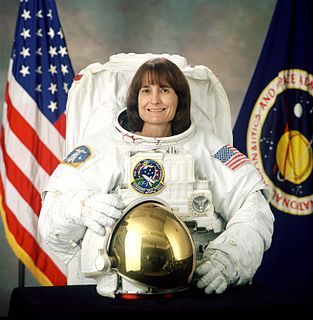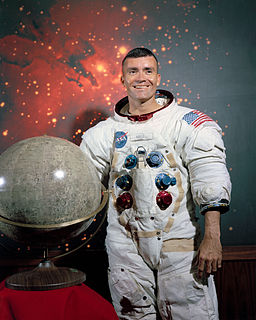A Quote by Andy Weir
Back in the days of Apollo, sending humans to the moon was the only viable way to get the scientific data we wanted. But now, with our computer and robotics technology, there's very little an astronaut can do on Mars that a well-designed rover can't.
Related Quotes
By 2025 we expect new spacecraft designed for long journeys to allow us to begin the first ever crewed missions beyond the Moon into deep space. So we'll start by sending astronauts to an asteroid for the first time in history. By the mid-2030s I believe we can send humans to orbit Mars and return them safely to Earth. And a landing on Mars will follow and I expect to be around in see it.
The next humans to walk on the moon may be Chinese. Only China seems to have the resources, the dirigiste government, and the willingness to undertake a risky Apollo-style programme. If Americans or Europeans venture to the moon and beyond, this will have to be in a very different style and with different motives.
One of the things that's really exciting from my perspective is that Canada is one of the major spacefaring nations. The list of our achievements is profound and significant, and it's not just in robotics, it's also in the life-sciences research experiments that take place on board and other space-science experiments. I'd love to see Canada go from being a major spacefaring nation in low-Earth-orbit missions to those beyond, making sure we're part of those missions to Mars - not just from a technology perspective, but sending humans into beyond-Earth orbit.
People say, oh we just need charismatic leaders to continue on to Mars. Now we've gone to the moon, of course Mars is next. No. Mars was never, of course, next. It is next if you think we went to the moon because we're explorers, but if you know we went to the moon because we were at war then we're never going to Mars. There's no military reason to do it, to justify the expenditure.
For me, the passion of being an astronaut was ignited at an early age. I have this recollection of looking at a picture of the Apollo program - Neil Armstrong standing on the Moon - then looking at the night sky and realizing that, right where I was looking, people stood and looked back at the Earth. Even as a fairly young child, that was not lost on me, and it inspired me to pursue my dream. I didn't know if I would ever become an astronaut, of course, and the odds are not in your favour, but I just kept it in the back of my mind and tried to keep those options open.
I think the only way that the U.S. human spaceflight program is going to get really revitalized, really put sort of an Apollo level push on it, is if some other country, perhaps China, were to actually have a landed flight to the moon and brought back our American flag and put it in Tiananmen Square.
To send humans back to the moon would not be advancing. It would be more than 50 years after the first moon landing when we got there, and we'd probably be welcomed by the Chinese. But we should return to the moon without astronauts and build, with robots, an international lunar base, so that we know how to build a base on Mars robotically.






































